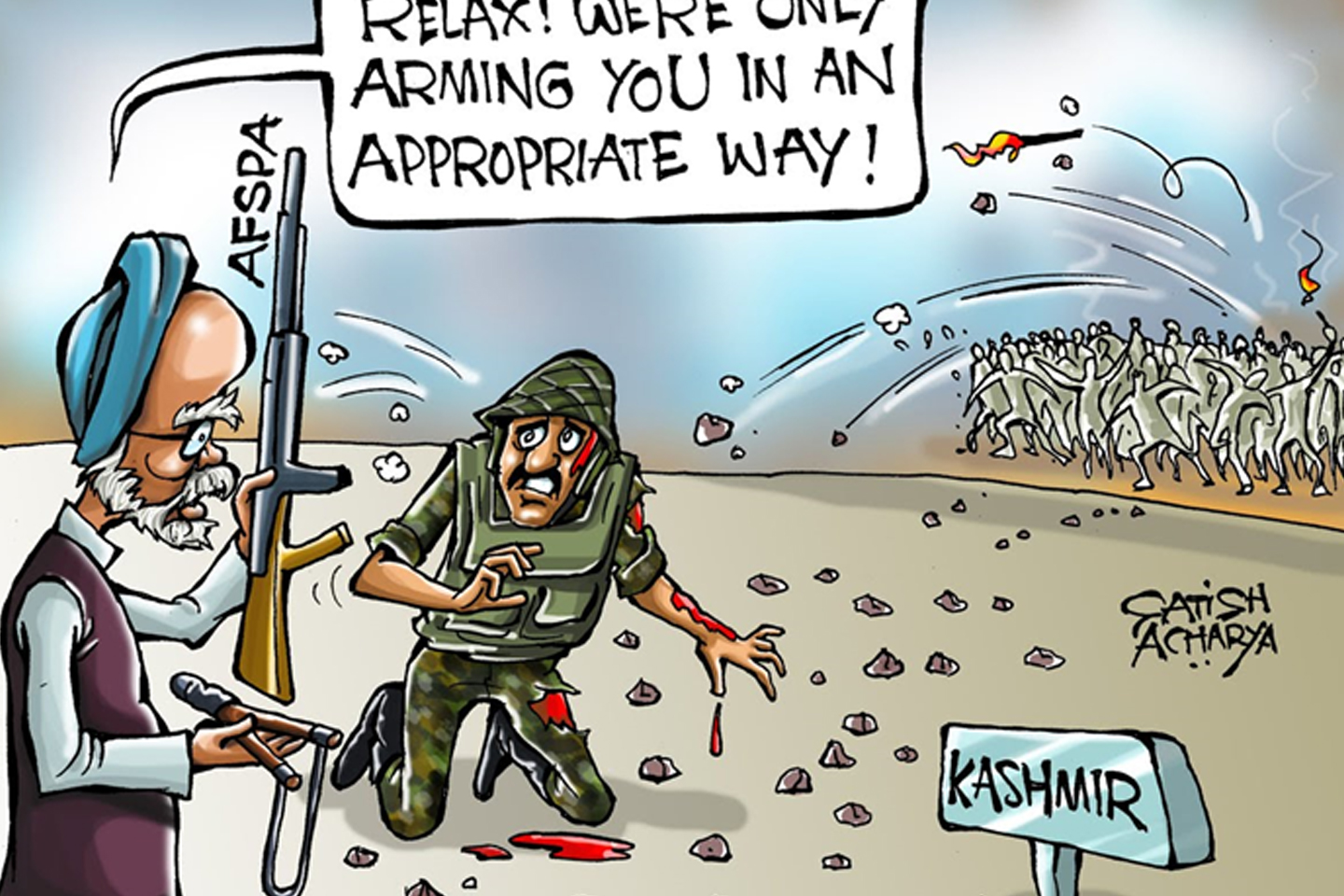Security or repression?
The seven sisters of India have been living under the wraps of AFSPA for more than 60 years - giving rise to psychological trauma and alienation of the local people.
Armed Forces Special Powers Act (AFSPA), 1958 is an act of the Parliament of India which grants special powers to the Indian Armed Forces to maintain public order in areas described as ‘disturbed’ by the government. The powers include using force, conducting arrests without a warrant, and searching any premises, vehicle, or vessel. The act is resorted to in cases of continued unrest, militancy, insurgency and threatening of borders.
Most of the provisions of the act are in sharp contrast to the Fundamental Rights granted by the Constitution. Laws such as protection of life and liberty, protection against arrest and detention and the procedure for arrest of persons are directly violated by this act. Ever since its enactment, it has led to a huge number of disappearances, extrajudicial killings, and unlawful behaviour. In 2009, UN Commissioner for Human Rights termed the act "A dated and colonial-era law that breaches contemporary international human rights standards” and asked India to repeal the act.
On 31st March 2022, the central government significantly reduced the footprint of the act in the Northeast – they withdrew it entirely from 23 districts of Assam, and partially from 7 districts of Nagaland, 6 of Manipur, and 1 of Assam. Home Minister Amit Shah tweeted, “The reduction in areas under AFSPA has come as a result of the improved security situation and fast-tracked development due to consistent efforts and several agreements to end insurgency and bring lasting peace in North-East by the government led by Prime Minister Narendra Modi”.
It is agreed that certain areas in the northeast needed such an act to control the growing unrest and terrorism there. However, certain provisions of the act did not play out as planned and led to the violation of the masses’ liberties. How can we celebrate our 75th year of independence when a whole portion of our country is still under subjugation?

